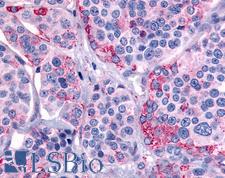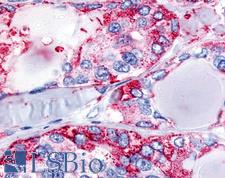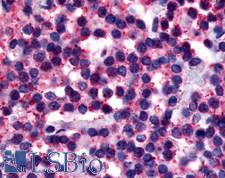Login
Registration enables users to use special features of this website, such as past
order histories, retained contact details for faster checkout, review submissions, and special promotions.
order histories, retained contact details for faster checkout, review submissions, and special promotions.
Forgot password?
Registration enables users to use special features of this website, such as past
order histories, retained contact details for faster checkout, review submissions, and special promotions.
order histories, retained contact details for faster checkout, review submissions, and special promotions.
Quick Order
Products
Antibodies
ELISA and Assay Kits
Research Areas
Infectious Disease
Resources
Purchasing
Reference Material
Contact Us
Location
Corporate Headquarters
Vector Laboratories, Inc.
6737 Mowry Ave
Newark, CA 94560
United States
Telephone Numbers
Customer Service: (800) 227-6666 / (650) 697-3600
Contact Us
Additional Contact Details
Login
Registration enables users to use special features of this website, such as past
order histories, retained contact details for faster checkout, review submissions, and special promotions.
order histories, retained contact details for faster checkout, review submissions, and special promotions.
Forgot password?
Registration enables users to use special features of this website, such as past
order histories, retained contact details for faster checkout, review submissions, and special promotions.
order histories, retained contact details for faster checkout, review submissions, and special promotions.
Quick Order
PathPlusTM CALCR / Calcitonin Receptor Antibodies
Calcitonin receptor (CALCR) is a transmembrane G-protein coupled protein that is a high-affinity receptor for calcitonin. It is involved in maintaining calcium homeostasis and regulating osteoclast-mediated bone resorption. This receptor is expressed during development and is involved in morphogenesis. In addition to binding calcitonin, CALCR can complex with RAMP3 (receptor activity modifying protein) to bind amylin, which regulates pancreatic islet function and is involved in Type II diabetes. Polymorphisms in the gene are associated with susceptibility to osteoporosis, and different alternatively spliced protein isoforms may regulate biologic responses to calcitonin. Furthermore, loss of functional CALCR through somatic mutation in glioblastoma is associated with an aggressive phenotype and poor prognosis. In immunohistochemistry, CALCR has membranous positivity on neurons in the hypothalamus, in renal tubules, osteoclasts, the testis and kidney.
References: J Clin Invest. 1992;90(5):1726-1735. doi: 10.1172/JCI116046; J Clin Invest. 1995;95(6):2680-2691. doi: 10.1172/JCI117970; Clin Cases Miner Bone Metab. 2007;4(2):117-122. PMID: 22461211; vMol Cell Proteomics. 2014;13(2):397-406. doi: 10.1074/mcp.M113.035600; The Journal of Cell Biology. 2004. 164 (4): 509–14, PMID: 14970190; Clin Cancer Res. 2018 Mar 15;24(6):1448-1458, PMID: 29263181;
3 PathPlusTM Antibodies



☰ Filters
Products
Antibodies
(3)
Type
Primary
(3)
Target
CALCR / Calcitonin Receptor
(3)
Reactivity
Human
(3)
Application
IHC
(3)
IHC-P
(3)
ELISA
(1)
Host
rabbit
(3)
Product Group
GPCR Database Antibodies
(3)
PathPlus Cancer
(3)
Clonality
polyclonal pc
(3)
Format
Unconjugated
(3)
Epitope
C-Terminus
(2)
N-Terminus
(1)
Publications
No
(3)

Cancer
Fast Shipping
CALCR / Calcitonin Receptor Rabbit anti-Human Polyclonal (C-Terminus) Antibody
Human
ELISA, IHC, IHC-P
Unconjugated
50 µg/$395

Cancer
Fast Shipping
CALCR / Calcitonin Receptor Rabbit anti-Human Polyclonal (C-Terminus) Antibody
Human
IHC, IHC-P
Unconjugated
50 µg/$395

Cancer
Fast Shipping
CALCR / Calcitonin Receptor Rabbit anti-Human Polyclonal (N-Terminus) Antibody
Human
IHC, IHC-P
Unconjugated
50 µg/$395
Viewing 1-3
of 3
product results










